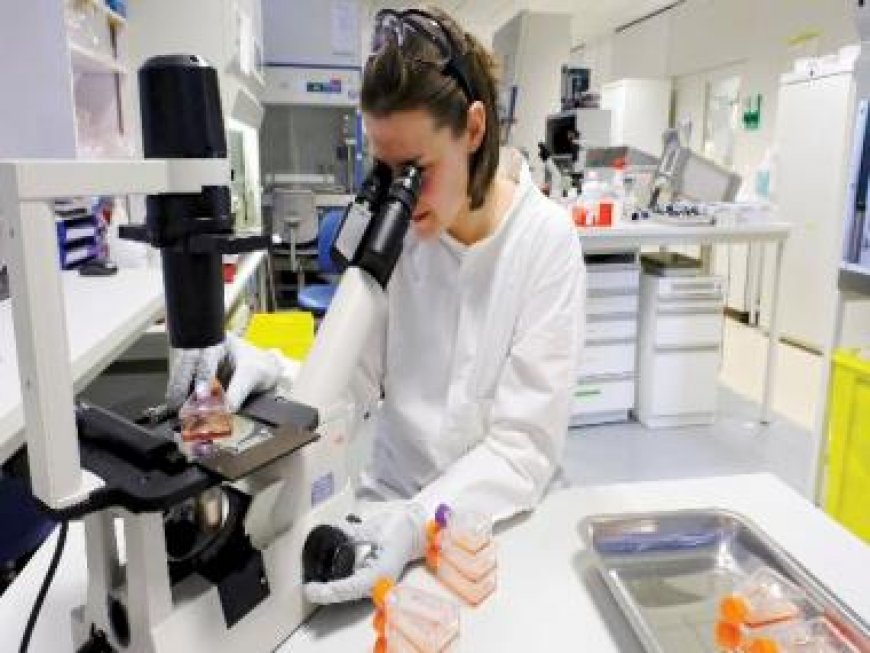Revolutionising healthcare with innovation in diagnostics
Revolutionising healthcare with innovation in diagnostics

In recent years, the field of healthcare diagnostics has witnessed robust growth and advancement, revolutionising how diseases are detected, monitored and treated. For instance, modern pathology labs are equipped with cutting-edge tools and technology, enabling prompt sample examination. The global diagnostic testing market was valued at USD 165.58 billion in 2021 and is expected to reach around USD 348.75 billion by 2030. The growing prevalence of various chronic and infectious diseases in India and the rising awareness among the urban population about early diagnosis and treatment have significantly steered the demand for diagnostic testing. This market was valued at $1.4 billion in 2022 and is predicted to expand at a CAGR of 11.53 per cent by 2028.
Increasing diagnostic access
While advancements in clinical labs have undoubtedly improved diagnostic capabilities, it remains critically important to ensure their accessibility to underserved populations. In India, despite technological progress, significant barriers continue to hinder individuals from rural or remote areas from accessing services, resulting in delayed or inadequate diagnoses. Innovative solutions, such as remote and portable diagnostic facilities can be implemented to bring diagnostics closer to these communities. Governments, private healthcare organizations, and diagnostic companies can leverage their combined resources to develop innovative solutions, expand infrastructure, and enhance diagnostic services through strategic collaboration and private-public partnerships. Thus, it becomes imperative for major diagnostics manufacturers to ensure uniformity in the reagent system and technological standardization across platforms ranging from the smallest to the largest instrument.
Disruptive technologies and breakthroughs
Emerging technologies in India are set to bring about a paradigm shift in the field of healthcare diagnostics, offering unprecedented opportunities for improving accuracy, efficiency, and patient outcomes. India’s preparedness for COVID-19 through the adoption of these technologies has helped reduce the gap in healthcare between rural (tier 2/3 cities) and urban areas. India has created complex vaccines such as the mRNA Covid-19 vaccine along with providing access to rapid testing in the rural set-up.
Genomic testing involves analysing an individual’s genetic data to identify disease risks and guide personalized treatment. It has played a crucial role in understanding the virus mutation during COVID-19. Next-generation sequencing is making it possible to sequence millions of DNA strands simultaneously. AI in diagnostics is assisting in improving diagnostic precision and speeding up the turnaround time for lab procedures. It also has the potential to provide affordable healthcare solutions and lower human error rates in medical lab testing. Similarly, cloud computing, the Internet of Medical Things (IoMT), analytics, and big data are further reshaping the arena of diagnostics.
Advanced diagnostic infrastructure
An increase in testing rates, coupled with staff shortage and lack of skilled personnel have resulted in technicians being overworked. On the other hand, the need for accurate and timely results remains unchanged. With the growing complexity of laboratory workflows, smaller, compact, and more user-friendly laboratory equipment solutions are in increasing demand. Advanced laboratory equipment reduces the time required for sample processing and analysis, thereby allowing increased testing volumes and quicker diagnoses and treatment processes. Such cutting-edge technologies facilitate more accurate and reliable results. Healthcare institutions with state-of-the-art laboratory equipment and facilities are more likely to gain a competitive edge as referring physicians are keen on choosing them. Thus, enhancing the quality and efficiency of diagnostic procedures plays a crucial role in improved patient care and outcomes.
Automated analytical equipment that can manage routine tasks such as daily maintenance or quality control can ensure better utilization of skilled labor. Thus, diagnostic solutions that can take care of these aspects are the need of the hour. For instance, the new immunoassay analyzer, DxI 9000 Access, helps meet the demands for speed, reliability, reproducibility, quality, and menu expansion. With its zero daily maintenance feature, precision vision technology, and remote service, it saves time, safeguards data, and enhances system efficiency. With its interactive home screen, it helps users lead through start-up, maintenance, QC, calibration, and consumable/reagent replenishment. Moreover, both the speed and sensitivity of testing can be enhanced with the help of advanced chemiluminescent substrate such as Lumi-Phos PRO Substrate which requires no equilibration to room temperature, shortens the time to the first result by 5 minutes, and also minimizes interference from endogenous alkaline phosphatase and non-specific binding.
With the growing need for diagnostic testing in India, scaling up capacity with training and upskilling of laboratory professionals is crucial. Moreover, options such as real-time error notification can help detect processing errors instantly facilitating immediate course correction. Thus, advanced technologies that offer optimal workflows and meet accelerated demand can drive greater productivity for the entire lab.
As technology continues to advance, efficient diagnostic tools are helping in earlier detection and more precise treatment of diseases. Moreover, the integration of diagnostic innovations into the healthcare system has the potential to streamline processes, reduce costs, and optimize resource allocation. By harnessing the power of novel technologies, diagnostics will empower patients and healthcare providers alike, driving a paradigm shift towards proactive, personalized, and patient-centric care.
The author is managing director at Beckman Coulter. Views expressed in the above piece are personal and solely that of the author. They do not necessarily reflect Firstpost’s views.
Read all the Latest News, Trending News, Cricket News, Bollywood News,
India News and Entertainment News here. Follow us on Facebook, Twitter and Instagram.
What's Your Reaction?



























































